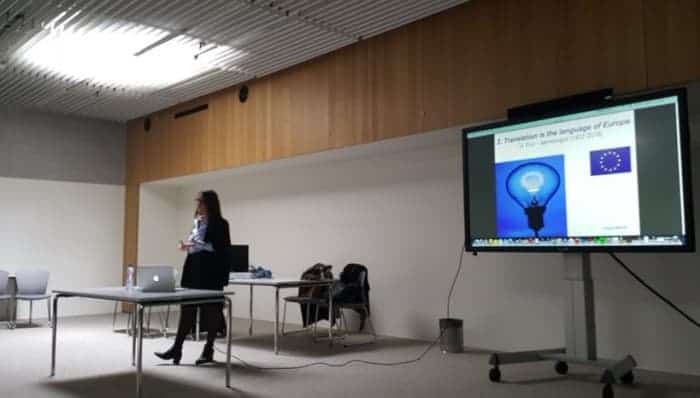 You may find it surprising or bizarre, but Reuters, one of the leading news agencies on a global scale, was given birth as a translation agency in 1851. As Bielsa and Bassnett report in their book Translation in Global News (2008), “news agencies are effectively vast translating organizations with the technology and skills required for the production of fast and accurate translations.” Indeed, they offer a variety of linguistic products tailored to meet the needs of the biggest news markets and to facilitate global news circulation.
You may find it surprising or bizarre, but Reuters, one of the leading news agencies on a global scale, was given birth as a translation agency in 1851. As Bielsa and Bassnett report in their book Translation in Global News (2008), “news agencies are effectively vast translating organizations with the technology and skills required for the production of fast and accurate translations.” Indeed, they offer a variety of linguistic products tailored to meet the needs of the biggest news markets and to facilitate global news circulation.
The interrelation between translation and journalism is therefore neither recent nor new, but the battle over language in the press has long heated the debate among public opinion and media themselves, with reference to the usage of the “right” terminology referred to migration, when reporting about “those making perilous journeys across the continent”.
“Refugee or migrant? Word choice matters”, is what recites a UNHRC Campaign in defence of those people who don’t deliberately decide to leave their country for economic reasons and are usually absorbed under the umbrella term “migrant”. While the United Nations make a sharp distinction between “migrants” and “refugees”, according to the EMN (European Migration Network), a “refugee” is also a “migrant”.
Term choice is questionable and not easy to make, especially when multilingual journalists are to translate articles or edit them while the clock is ticking in the newsroom. What’s the media΄s responsibility for readers’ perception of reality? What’s the price of “distorting” language?

This is the core content of a lecture I held on 19th May 2016 at the University of Luxembourg for the students of the Master in Learning and Communication in Multilingual and Multicultural Contexts as a Study Visitor at TermCoord and PhD Candidate in Media and Translation Studies at the University of Verona.
Larger news-media usually invest in reliable translation services, although translation is commonly seen as an automatic and invisible practice by journalists. Reporters tend to share the conviction that translation is mainly related to “literal equivalence” in texts, although such conception has become obsolete also among translators themselves.
Quoting Sapir (1956):
“No two languages are ever sufficiently similar to be considered as representing the same social reality. The words in which different societies live are distinct worlds, not merely the same world with different labels attached”.
What happens when a journalist bumps into a case of “anisomorphism” and there might be no linguistic correspondence between a language and another? What about using anglicisms without falling into the usual trap of keeping a word in English simply because it sounds more attractive?
These are just some slight examples of why terminology matters in journalism; using language correctly may reduce misunderstandings, improve communication and raise credibility in journalism.
Written by Jessica Mariani
Study Visitor at Termcoord
PhD Candidate in English Language and Translation – University of Verona
